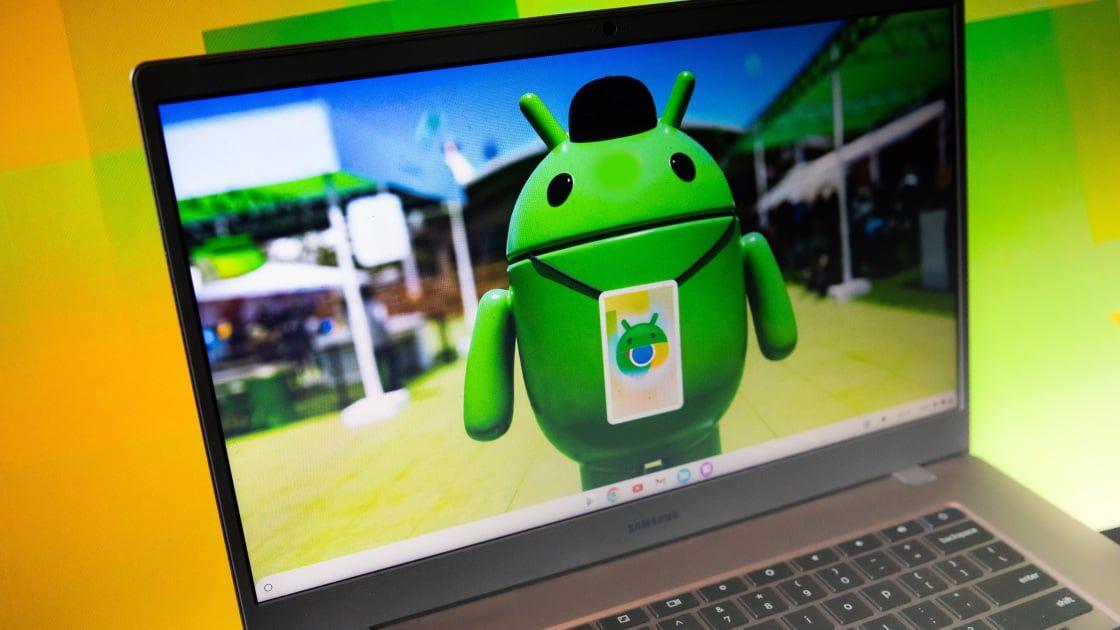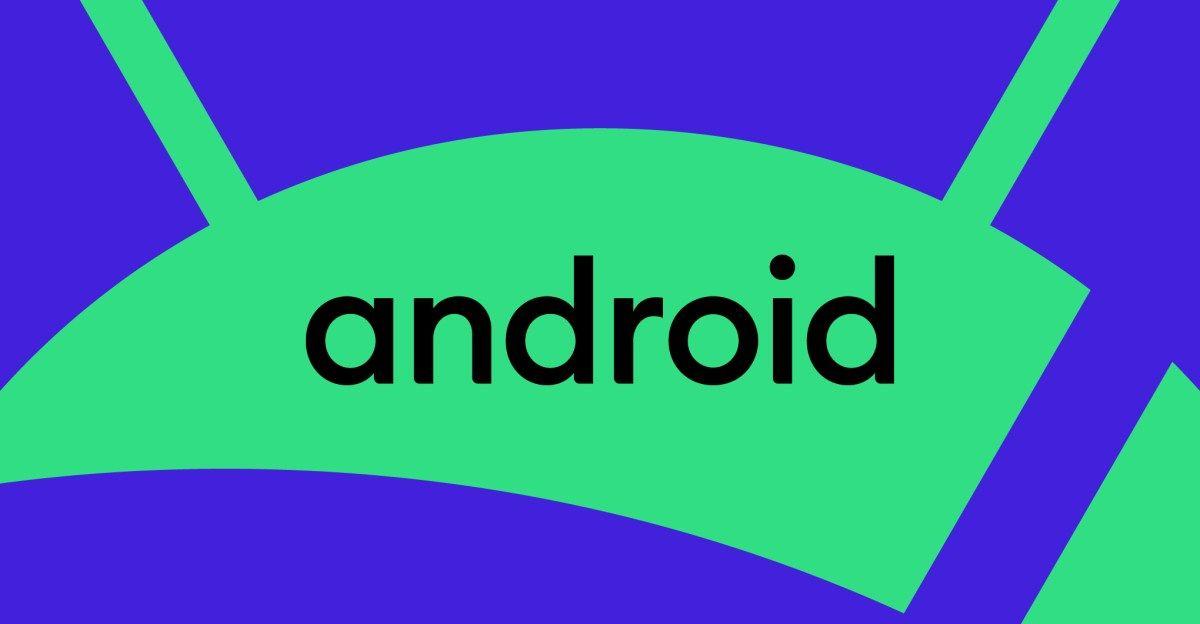Google's Android-ChromeOS Merger: A New Era for PC Computing
8 Sources
8 Sources
[1]
You Got Your Phone OS in My Laptop! Here's How Android and ChromeOS Will Merge
Expertise Smartphones | Gaming | Telecom industry | Mobile semiconductors | Mobile gaming Google's plans for its Android phone software have been clear: Grow the role of its Gemini AI assistant to handle more tasks and make it integral to most people's activities. The company's strategy for its lightweight ChromeOS for laptops and tablets is less clear, especially as Google teased earlier this year that it would be combined with Android. On the keynote stage at Snapdragon Summit 2025, executives Alex Katouzian from Qualcomm and Sameer Samat from Google finally gave us a window for when this software merger would happen: "next year" or sometime in 2026. But it wasn't until I sat down with those executives for a behind-closed-doors chat that I got a fuller picture of what this will mean for everything using ChromeOS -- and what will change when it incorporates Android, which is run on the majority of devices worldwide. But first, Samat -- president of Android ecosystem -- reassured that ChromeOS wasn't going anywhere. Instead, Android tech will augment the laptop operating system, especially with -- hold your surprise -- all the AI integration they've worked to bring to the mobile space. "We're fully committed to ChromeOS," Samat said. "It's natural to sort of look at ChromeOS, the user experience and Android [with] the underlying tech stack and say, 'What can we do to combine these two things together in a way that allows us to innovate more quickly on AI?'" The goal is to build a more cohesive experience among Android products, especially premium devices. That's where Qualcomm comes in. Its new mobile Snapdragon 8 Elite Gen 5 and PC platform Snapdragon X2 Elite chips are aimed at the top tiers of portable, powerful, yet battery-efficient devices along the spectrum of phones, tablets and laptops. As consumers own several of those devices and start adding wearables or smart glasses, it's advantageous to incorporate Android into their tech foundations. "We're going to go to the next generation of computing -- maybe it's MR, VR, AR capabilities -- and we're going to extend that. They're going to coexist. We want to participate in all of them," said Katouzian, Qualcomm's group general manager of mobile, compute and the XR business unit. "But then what's more important is the agent, namely Gemini, will connect all these devices." Positioning Gemini as the glue holding all your devices together aligns neatly with the picture Qualcomm painted at this year's Snapdragon Summit of using AI agents as the interface. Instead of searching through apps, you just ask questions as the agent searches for you. Refined AI models and silicon get us closer to this vision, but Qualcomm has been beating this drum for a while. But even if AI agents don't take over everyone's interfaces by the time Android merges with ChromeOS, there are still significant benefits, Samat explained. An obvious one is for ChromeOS to shift from emulating Android applications to running them natively, which should boost performance and gain better mouse and keyboard support. It will make app developers' lives much easier, as Android's adaptive components let it be sized up or down to different-sized screens, from phones to big TV-sized displays. Users of device categories that run ChromeOS -- laptops and tablets -- will use the same apps built for use across the Android ecosystem. "We're going to take all of the learnings that we did on Android, all the acceleration and capabilities, and apply it to a large productivity computing device that can run the same apps, the same games ... integrate in Gemini and put AI to use for all of those environments and all those applications," Katouzian said. There's still uncertainty about how an Android-and-ChromeOS combo will look when people pop open a device running the converged software. "Not all of it is done yet. To be honest, I think we're still working through that," Samat said. "We definitely want people to understand that we can better connect your laptop with your Android phone and make that experience really seamless. But a lot of the UI and a lot of the details we're still working through. We have a ways to go." In the meantime, Google continues to launch Gemini on new devices, from introducing it in smartwatches like the Galaxy Watch 8 via July's Wear OS 6 update to debuting the first TVs with the assistant, like the TCL QM9K, launched at the beginning of September. In laptops and tablets, Samat is excited to include Gemini Nano, the on-device version of the assistant that can parse queries on the device -- helpful when out in the field away from Wi-Fi. But it's clear that Google and Qualcomm see the Android-and-ChromeOS future as enhancing productivity first, which makes sense for the lightweight computing devices running such software. And it's appropriate that these are the execs leading that charge. When I asked them about their favorite ways to use Gemini, they went straight for productivity hacks. Samat's was impressively arcane, what he calls a "mega productivity prompt." After dumping info into Gemini like his job and team descriptions as well as his quarterly goals, he has the assistant run through his calendar and Gmail inbox to figure out the most important things to know for every professional engagement he has coming up. "So for every single meeting, I get a little readout -- it's kind of like having somebody just write a briefing for you," Samat said. Katouzian uses Gemini to parse the vast communication he gets over text -- emails, messages, etc -- by summarizing and helping draft quick responses. "It takes such a long time for me to try to write out exactly what I want," Katouzian said. "I'm asking [Gemini], hey, here's a situation, this is the gist I want -- what do you think? And it spits out a bunch of stuff. I use it that way throughout the day, outside of just search and discussion." As they integrate Gemini into their work lives, they've also found uses off the clock. Samat described a situation in which his son was agonizing over choosing between two high schools. Rather than making a simple pro/con list, Samat sought more specific guidance. "I asked Gemini, how can I help as a dad so that he still owns the decision, but I can help him through this decision. And it gave me two or three [suggestions] ... they were totally awesome. Ultimately, it worked out really well," Samat said.
[2]
Google's Android for PC: 'I've seen it, it is incredible'
Google is continuing to slowly tease its rumored plans to bring Android to PCs, merging it with ChromeOS, and now Qualcomm CEO Cristiano Amon is getting in on the action. He says he's seen a version of the software, and that he "can't wait to have one." Amon was speaking on stage with Google's head of platforms and devices, Rick Osterloh, during the opening keynote for Qualcomm's Snapdragon Summit, where later today the company will reveal its Snapdragon 8 Elite Gen 5 chipset. Before that though, the two execs teased Google and Qualcomm's future plans together, from automotive to consumer PCs. "In the past, we've always had very different systems between what we're building on PCs and what we're building on smartphones, and we've embarked on a project to combine that," Osterloh said. " We are building together a common technical foundation for our products on PCs and desktop computing systems." He went on to confirm that Google's plans involve bringing Gemini and the full Android AI stack, along with "all of our applications and developer community," into the PC ecosystem. "I think this is another way in which Android is gonna be able to serve everyone in every computing category." "I've seen it, it is incredible," replied Amon excitedly. "It delivers on the vision of convergence of mobile and PC. I can't wait to have one." The last we heard of Google's plans was this July, when Android head Sameer Samat confirmed Google is "combining ChromeOS and Android into a single platform," following last year's efforts to begin developing ChromeOS on parts of the Android stack.
[3]
Google Teases Its Android PC Project Again. Qualcomm Says 'It's Incredible'
Google's Rick Osterloh at Made By Google 2024 (Credit: David Paul Morris/Bloomberg via Getty Images) Don't miss out on our latest stories. Add PCMag as a preferred source on Google. The teasers continue from Google around plans to bring Android to PCs. During an onstage conversation with Qualcomm CEO Cristiano Amon at its Snapdragon Summit this week, Google's SVP of Devices and Services, Rick Osterloh, said, "In the past, we've always had very different systems between what we're building on PCs and what we're building on smartphones. We've embarked on a project to combine that. "We are building together a common technical foundation for our products on PCs and desktop computing systems," he added. "This is another way we can leverage all of the great work we're doing together on our AI stack, our full stack, bringing Gemini models, bringing the assistant, bringing all of our applications and developer community into the PC domain. "I think this is another way in which Android is going to be able to serve everyone in every computing category." Amon added that he's "seen it, it is incredible. It delivers on the vision of convergence of mobile and PC. I cannot wait to have one." Osterloh didn't confirm how Google will market these changes. This comes a couple of months after Google's Sameer Samat, president of the Android ecosystem, told TechRadar it planned to combine "ChromeOS and Android into a single platform." Soon after that interview went live, Samat said on social media, "We're building the ChromeOS experience on top of Android underlying technology to unlock new levels of performance, iterate faster, & make your laptop + phone work better together." He clarified this was all shared in a blog post back in 2024. This may have been Samat's way of suggesting ChromeOS branding will remain, even though the technologies will be more similar than ever. For now, Osterloh's teasing of Android's future on computing hardware may suggest we'll hear Google's full plans sooner rather than later.
[4]
Google and Qualcomm hint at "incredible" Android PC in development
Serving tech enthusiasts for over 25 years. TechSpot means tech analysis and advice you can trust. Looking ahead: Google and Qualcomm have teased the development of a PC running on Android, marking what could be a significant shift for both companies. Qualcomm CEO Cristiano Amon described the mysterious device as "incredible" and admitted he "cannot wait to have one," though concrete details remain scarce. Speaking during the opening keynote at Qualcomm's Snapdragon Summit 2025, Amon and Google's SVP of Devices and Services, Rick Osterloh, spoke about what the future of computing could hold. Osterloh said that in the past, Google has always had very different systems for what it's building for PCs and smartphones. But the company has embarked on a project to combine the two. "We are building together a common technical foundation for our products on PCs and desktop computing systems," the exec said. Being Google, there was the obligatory mention of how AI will integrate into this project. Osterloh said Google plans to build on its existing AI stack, integrating Gemini models, the Google Assistant, and its broader suite of apps and developer tools into the PC ecosystem. Osterloh is undoubtedly referring to the merger of ChromeOS and Android that Sameer Samat, President of the Android Ecosystem, spoke about in an interview in July. Amon seemed particularly excited about the project. "I've seen it, it is incredible. It delivers on the vision of convergence of mobile and PC. I cannot wait to have one," he gushed. Google has been blending elements of ChromeOS and Android for a while now. For example, Android 16 now includes a much-improved desktop mode that allows multiple apps to be used on external displays. In June, Google announced plans to integrate the Android Linux Kernel, Android frameworks, and other Android stack features into the core of ChromeOS. There were no other details about a potential Android-powered PC or its release date. Whether consumers share Amon's enthusiasm for such a device remains to be seen. Qualcomm unveiled its first wave of Windows 10 on Arm laptops back in 2017. They failed to capture the public's imagination, but that didn't stop the release of the Snapdragon X Elite and Snapdragon X Plus PCs in 2024. The devices have received plenty of praise, especially for their battery life, but their overall share in the PC/laptop market is still under 1% - though Qualcomm claims around 10% of laptops over $800 sold in the US are powered by its chips.
[5]
Google wants to take on Windows with Android for PCs -- and Qualcomm's CEO already says it's 'incredible'
Google is making a big push to bring Android to PCs. During this year's Qualcomm Snapdragon Summit, Google's Rick Osterloh shared that the company was working on a way to merge Android and ChromeOS (via Android Authority). To make things more interesting, Qualcomm CEO Cristiano Amon said he's seen the software and is excited. "In the past, we've always had very different systems between what we're building on PCs and what we're building on smartphones, and we've embarked on a project to combine that," said Osterloh during the Snapdragon Summit opening keynote. " We are building together a common technical foundation for our products on PCs and desktop computing systems." Osterloh then discussed Google's plans to bring Gemini and the full Android AI stack to PCs. "This is another way we can leverage all of the great work we're doing together on our AI stack, our full stack, bringing Gemini models, bringing the assistant, bringing all of our applications and developer community into the PC domain," said Osterloh. "And I think this is another way in which Android is gonna be able to serve everyone in every computing category." To that, Cristiano Amon said that he's seen it and that it "is incredible" and that it "delivers on the vision of convergence of mobile and PC." Regarding a PC that runs on this platform, the Qualcomm CEO also said he "cannot wait to have one." This isn't the first time there has been discussion about merging Android with Chrome OS. As we've previously reported, Android's Sameer Samat said that Google was "combining ChromeOS and Android into a single platform." That statement was made when Google began developing ChromeOS on parts of the Android stack. We spoke with research firm IDC about the potential for Android on PCs, and it sounds like it could fix one of the biggest problems with Chrome OS. "From an end-user perspective, Chrome OS' heavy reliance on the web has always been a point of frustration and has excluded Chrome OS from participating in many countries where internet access is intermittent," said Jitesh Ubrani, research manager at IDC. "By combining the two operating systems, Google can hopefully create an operating system that shares the benefits of both Android and Chrome while shedding the parts of each that are less than ideal. It would also help Google create more cohesion between smartphones running Android and PCs running Chrome OS." According to IDC, Windows maintains a firm hold on the PC operating system market, with a global usage share of 79.8% in 2025. Meanwhile, ChromeOS accounts for 7.3% of PC usage. Google has a steep hill to climb if it wants to eat into Microsoft's PC dominance. However, it can potentially shine in certain segments. "In the near term, impact would be limited to areas where Chrome OS already shines, i.e., the education segment and the U.S. market," said Ubrani. "However, long-term, Google has yet another opportunity at convincing average consumers to switch. Younger consumers are already relying on Chrome OS while in school, but when they graduate into the workplace, they often switch to Windows or Mac. The combination of Chrome and Android would potentially help these consumers gravitate towards Google's platform, though this will take years to accomplish." Ubrani added that there's an opportunity to lure regular customers, but it will require a lot of marketing, which is something the researcher says Google hasn't always been keen on spending when it comes to hardware. We'll keep an eye on this story and provide you with the latest developments as we hear them.
[6]
Qualcomm and Google announce development of new Android PCs
TL;DR: At Snapdragon Summit 2025, Qualcomm and Google announced a new line of Android-driven PCs designed for the AI era, combining the Android ecosystem, Gemini AI, and next-gen Snapdragon chips. These Android PCs aim to deliver enhanced functionality, connectivity, and AI-powered performance beyond traditional Chromebooks. The Snapdragon Summit 2025 is currently underway in scenic Maui, where I've been invited to attend as a Snapdragon Insider. Although the latest Snapdragon hardware announcements are scheduled for tomorrow, which Qualcomm President and CEO Cristiano R. Amon teased as being a game-changer for the AI era during his opening keynote address, there was one surprise reveal when he brought the Senior Vice President of Devices & Services at Google on stage. Qualcomm President and CEO Cristiano R. Amon and Senior Vice President of Devices & Services at Google Rick Osterloh at Snapdragon Summit 2025. During an informal fireside chat, where the two discussed the long history between Qualcomm and Google (they even brought the first, and still working, Android phone on stage), they teased and announced an exciting new project currently in development. And that is a new line of computers or PCs that will be Android-driven for the AI era. Now, these won't be Chromebooks (which run on ChromeOS), but instead full PCs that bring the Android ecosystem, Gemini AI, and next-generation Snapdragon chips together in a way that has made Android one of the most popular operating systems for smartphones. Yes, these will be Android PCs. This isn't Qualcomm or Snapdragon's first foray into the world of PCs, as last year the company partnered with Microsoft and other partners to develop and launch the first line of AI-powered Windows on Arm devices - otherwise known as Copilot+ PCs. Right off the bat, these new Android PCs will offer significantly more functionality and connectivity, providing access to a broader range of apps, services, and other features that define the modern PC experience. If we take current Snapdragon-powered Copilot PCs as a template, we can assume that these PCs will include notebooks that offer a long-lasting battery in addition to enough AI horsepower to run local models. We didn't receive many details about these new Android PCs, as they're still in development. Cristiano R. Amon remarked that he can't wait to test one out. However, with the keynote focusing on the future of AI, where Edge devices and the Cloud work together to create an "AI is the UI" ecosystem, this will undoubtedly be the key focus for these new Android PCs. Hopefully, we won't have to wait too long to find out more.
[7]
Google Plans on Building Android for PCs, Qualcomm CEO Calls It 'Incredible'
The new system will also include . On PCs, Gemini AI models, Google assistants, and Google apps will be available. This will let users use AI tools across all devices, not just phones. The integration aims to make PCs smarter and more helpful. Qualcomm CEO Cristiano Amon spoke highly of the project. He said, "I've seen it, it is incredible." He added that it shows the future of mobile and PC convergence. Though Google did not share the launch date, the partnership with Qualcomm shows that PCs with Snapdragon chips will likely use this new system. The system is expected to run on Qualcomm's next-generation . These processors promise fast performance and long battery life for laptops and desktops. The combination of Google's software and Qualcomm's hardware could make PCs more efficient and powerful. Google and Qualcomm are working together to make the new system appeal to everybody. From students to office workers, it aims to improve the PC experience. 's lightweight nature could very well place the new system solidly in the center of the PC market. The first devices with Android for PC may appear in late 2026 or early 2027. The move is seen as an important step in making Android more than just a phone operating system. It could change how people use computers and apps across devices.
[8]
Google confirms Android laptops are coming: Here's what we know so far
Analysts expect the first devices to target the budget PC market, much like Chromebooks. Google is currently preparing to expand Android beyond smartphones and tablets. The company confirmed that the operating system will be available for laptop and desktop computers. This comes after Rick Osterloh, Google's Senior Vice President of Devices and Services, confirmed the development at the Snapdragon Summit, where he appeared alongside Qualcomm CEO Christiano Amon. Until now, Google has maintained separate platforms for different categories: Android for phones and Chrome OS for laptops. However, Osterloh confirmed that the company is now collaborating with Qualcomm on a unified foundation that will allow Android to operate across multiple computing categories, including personal computers. However, the details are still unknown, and speculation is growing about the possibility of a Pixel-branded Android laptop. Google has been in the news for months for merging Chrome OS and Android, and Osterloh's comments confirm the development. Given Qualcomm's involvement, the new category of devices will most likely be powered by Snapdragon chipsets designed for AI and mobility. Artificial intelligence is growing rapidly and it is expected to be at the heart of these Android computers. Google planned to include its Gemini AI model, as well as Assistant and its larger ecosystem of apps and services, into the new platform. Osterloh pointed out that this convergence will benefit not only consumers, but also developers, who will have new opportunities in the PC domain. It should be noted that no launch date has been announced at this point. However, it is fair to say that the launch of Android-powered laptops is imminent. Analysts believe the devices will initially target the affordable PC segment, similar to how Chromebooks are positioned.
Share
Share
Copy Link
Google plans to merge Android and ChromeOS, aiming to create a unified platform for PCs and mobile devices. This move, backed by Qualcomm, promises to revolutionize the computing landscape with AI integration and seamless cross-device experiences.
Google Unifies OS for PCs
Google plans to merge Android and ChromeOS into a single operating system for PCs and mobile devices. This initiative, backed by Qualcomm, targets a unified computing experience . Google's SVP Rick Osterloh confirmed a "common technical foundation" for PCs at Snapdragon Summit 2025, signaling a shift from separate platforms .
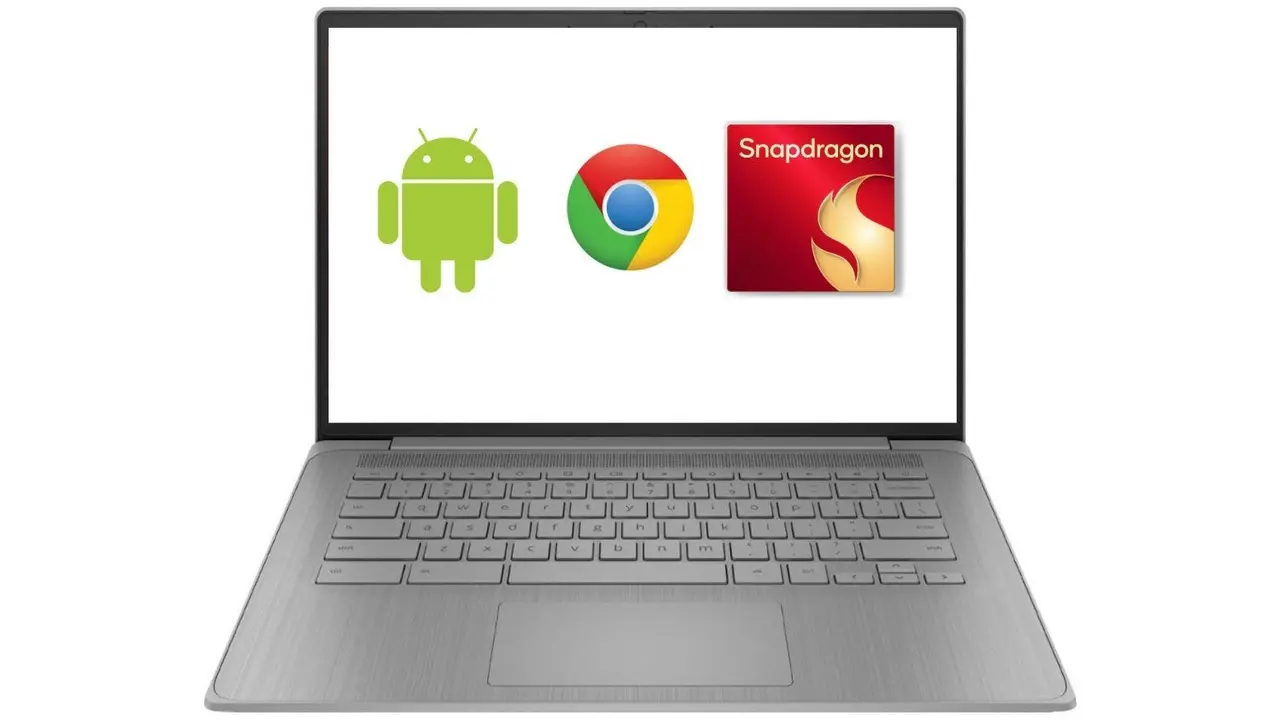
Source: TweakTown
AI at the Core
The merged platform integrates Google's AI, including Gemini AI assistant and Android's AI stack, promising enhanced productivity and seamless cross-device functions . Features encompass native Android apps on PCs with improved peripheral support, adaptive UIs for varied screens, on-device AI via Gemini Nano, and better laptop-phone connectivity .
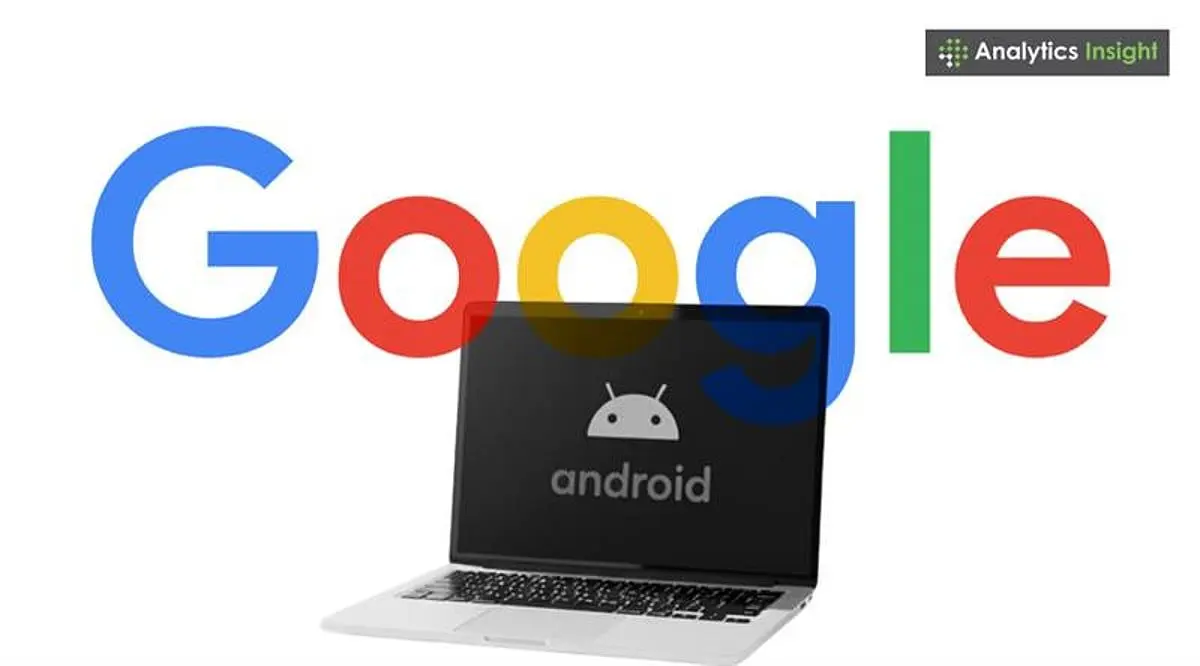
Source: Analytics Insight
Qualcomm's Crucial Partnership
Qualcomm is a vital partner. CEO Cristiano Amon described the software as "incredible," fulfilling the "convergence of mobile and PC" . Qualcomm's Snapdragon 8 Elite Gen 5 and Snapdragon X2 Elite chips will power these next-gen devices .
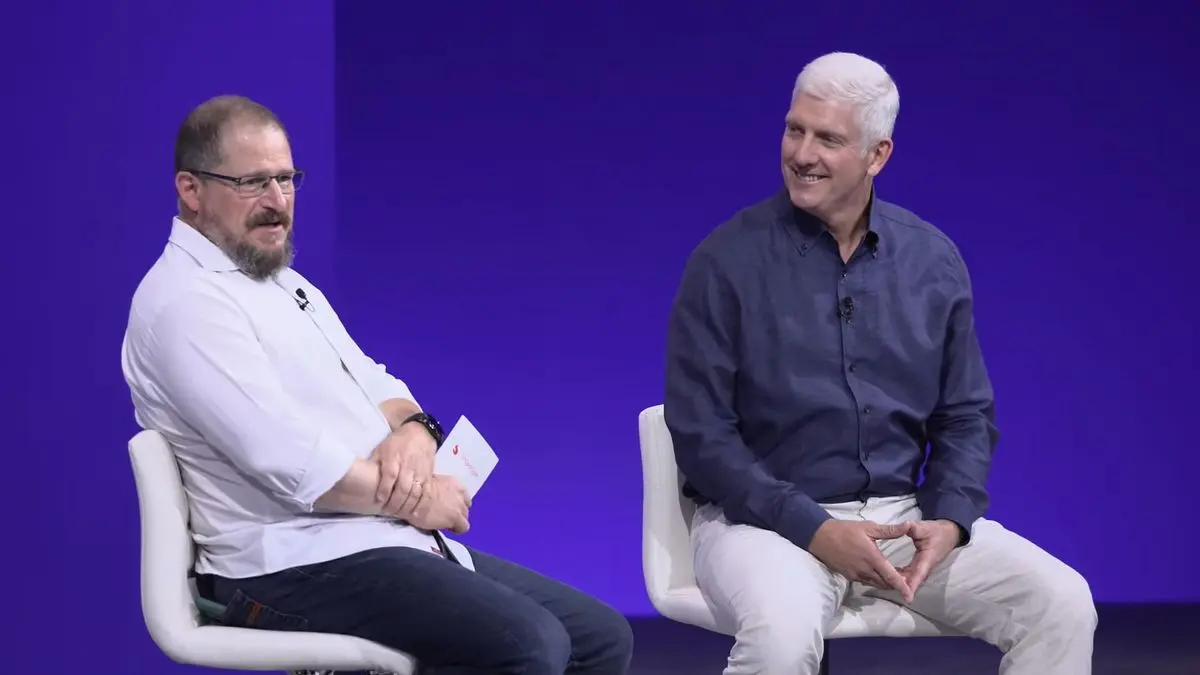
Source: Tom's Guide
Related Stories
Market Impact
Google expects a launch "next year" or in 2026 . This platform could disrupt the PC market, offering an alternative to Windows, especially for Google's mobile users . Success requires addressing app compatibility, performance, and user experience against existing desktop OS [5](http://example5.com]. The industry awaits details.
References
Summarized by
Navi
Related Stories
Recent Highlights
1
Pentagon threatens Anthropic with Defense Production Act over AI military use restrictions
Policy and Regulation

2
Google Gemini 3.1 Pro doubles reasoning score, beats rivals in key AI benchmarks
Technology

3
Anthropic accuses Chinese AI labs of stealing Claude through 24,000 fake accounts
Policy and Regulation

